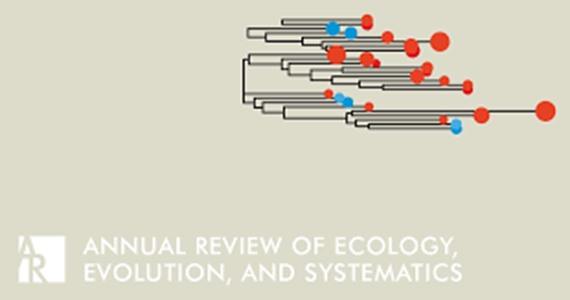Observed and Potential Range Shifts of Native and Nonnative Species with Climate Change
IF 11.2
1区 生物学
Q1 ECOLOGY
Annual Review of Ecology, Evolution, and Systematics
Pub Date : 2024-06-17
DOI:10.1146/annurev-ecolsys-102722-013135
引用次数: 0
Abstract
There is broad concern that the range shifts of global flora and fauna will not keep up with climate change, increasing the likelihood of population declines and extinctions. Many populations of nonnative species already have advantages over native species, including widespread human-aided dispersal and release from natural enemies. But do nonnative species also have an advantage with climate change? Here, we review observed and potential range shifts for native and nonnative species globally. We show that nonnative species are expanding their ranges 100 times faster than native species, reflecting both traits that enable rapid spread and ongoing human-mediated introduction. We further show that nonnative species have large potential ranges and range expansions with climate change, likely due to a combination of widespread introduction and broader climatic tolerances. With faster spread rates and larger potential to persist or expand, nonnative populations have a decided advantage in a changing climate.观测到的和潜在的本地和外来物种随气候变化而发生的分布范围变化
人们普遍担心,全球动植物的分布范围变化跟不上气候变化的步伐,从而增加了种群减少和灭绝的可能性。与本地物种相比,许多非本地物种种群已经拥有优势,包括广泛的人类辅助传播和天敌释放。但是,非本地物种在气候变化中也有优势吗?在这里,我们回顾了在全球范围内观察到的和潜在的本地和非本地物种的分布范围变化。我们发现,非本地物种的分布范围扩大速度是本地物种的 100 倍,这既反映了能够快速传播的特性,也反映了以人类为媒介的不断引入。我们进一步表明,非本地物种的潜在分布范围和分布范围随着气候变化而扩大,这可能是由于广泛引入和更广泛的气候耐受性共同作用的结果。凭借更快的传播速度和更大的持续或扩展潜力,非本地种群在不断变化的气候中具有决定性的优势。
本文章由计算机程序翻译,如有差异,请以英文原文为准。
求助全文
约1分钟内获得全文
求助全文
来源期刊
CiteScore
19.90
自引率
1.70%
发文量
21
期刊介绍:
The Annual Review of Ecology, Evolution, and Systematics is a scholarly publication that has been in circulation since 1970. It focuses on important advancements in the areas of ecology, evolutionary biology, and systematics, with relevance to all forms of life on Earth. The journal features essay reviews that encompass various topics such as phylogeny, speciation, molecular evolution, behavior, evolutionary physiology, population dynamics, ecosystem processes, and applications in invasion biology, conservation, and environmental management. Recently, the current volume of the journal transitioned from a subscription-based model to open access through the Annual Reviews' Subscribe to Open program. Consequently, all articles published in the current volume are now available under a CC BY license.

 求助内容:
求助内容: 应助结果提醒方式:
应助结果提醒方式:


